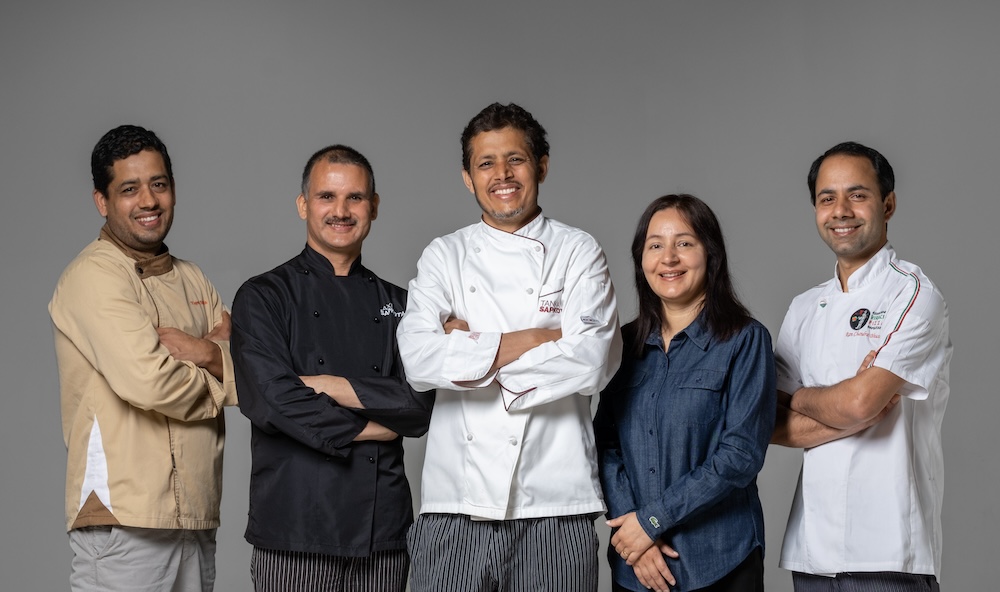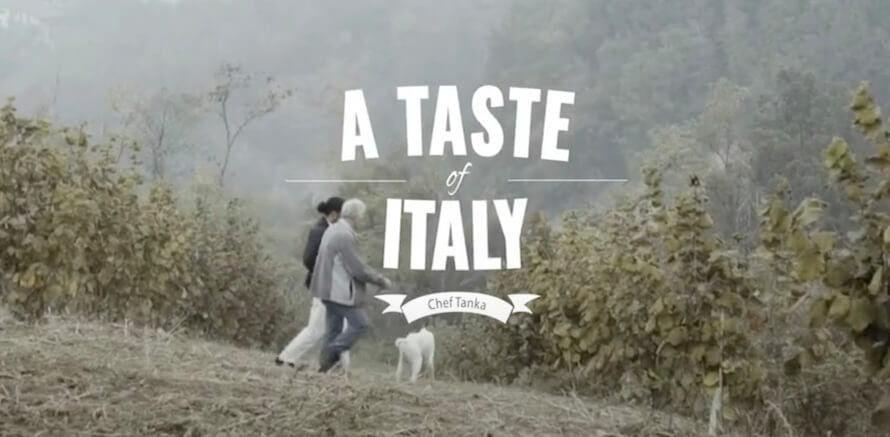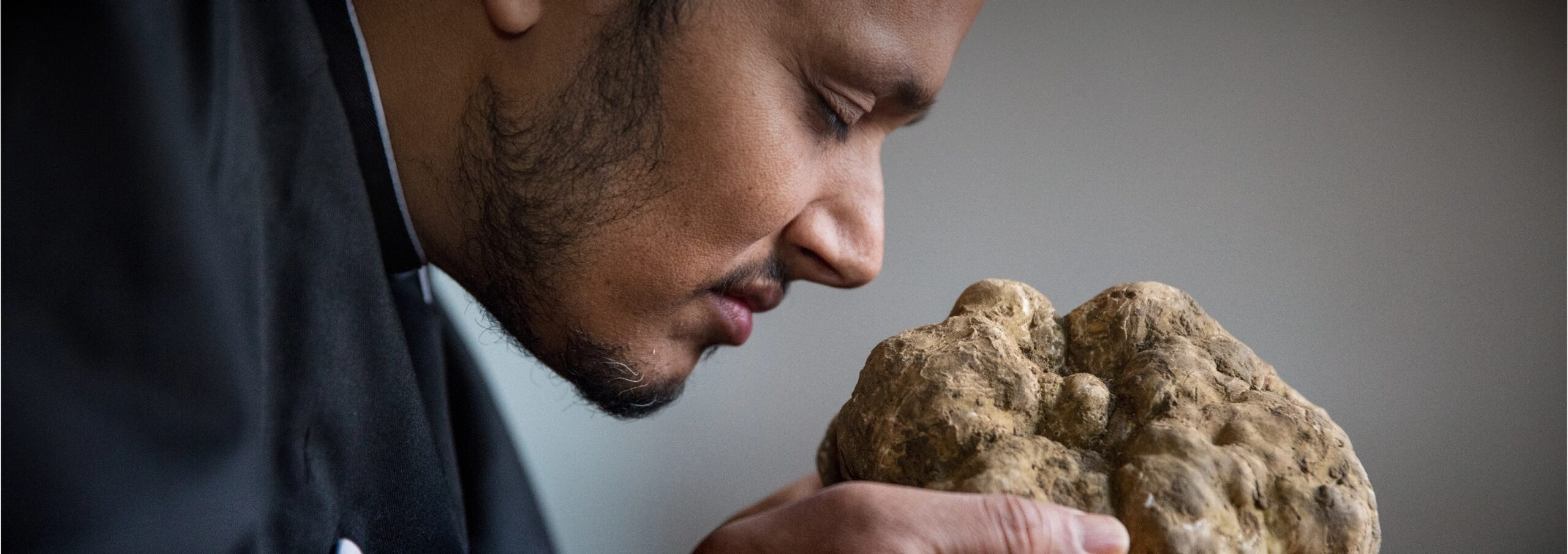
The Chef
Tanka Sapkota was born in Nepal, has a Portuguese heart, and an Italian soul.
Tanka Sapkota, renowned chef and owner of the prestigious restaurants Come Prima, Forno d’Oro, Il Mercato, and Casa Nepalesa, all in Lisbon, combines the culinary traditions of Nepal with his passion for Portugal and Italy. Through a cuisine that values seasonal ingredients and traditional methods, Tanka not only delights palates but also dedicates himself to enriching the community with solidarity initiatives and cultural promotion. Internationally awarded, his commitment to excellence and social responsibility is reflected in every dish. Join us for a unique gastronomic experience where every meal is a celebration of life, nature, and authentic gastronomy.
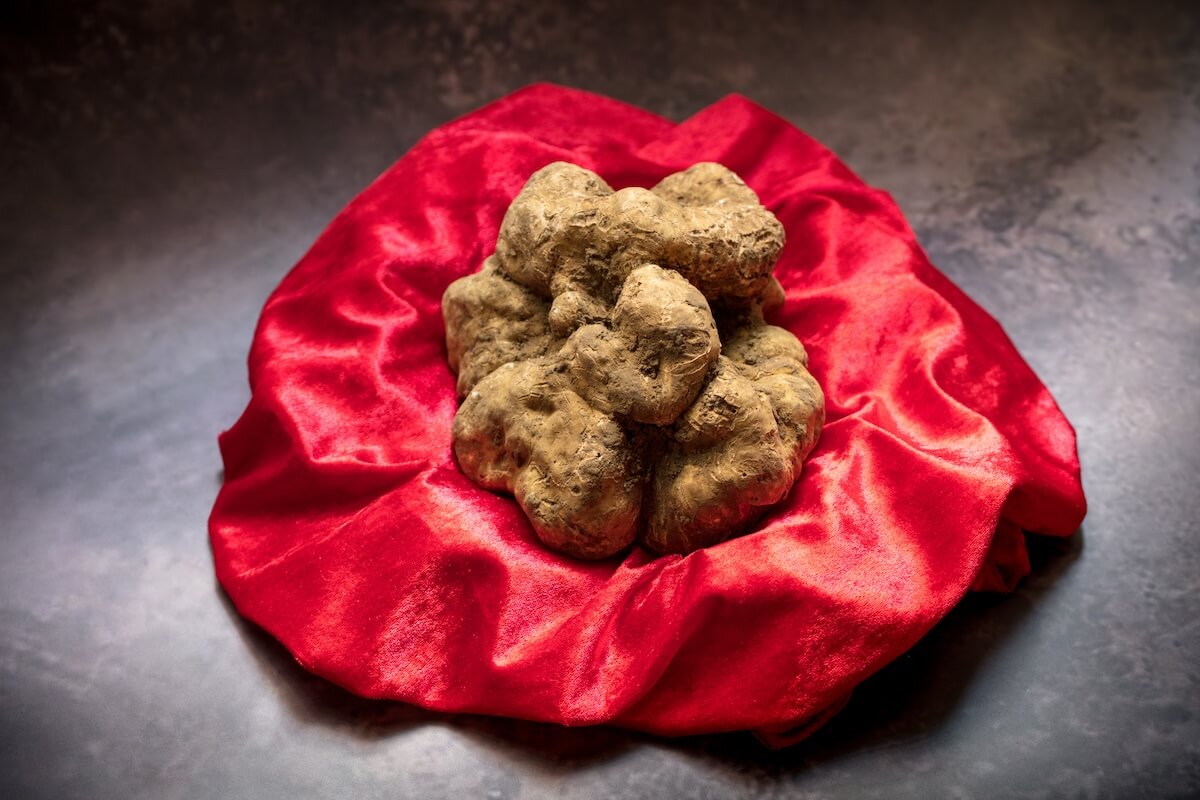
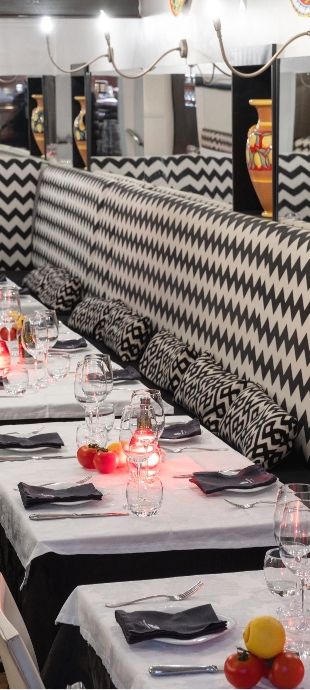
Nepalese roots and a Portuguese heart converge in a concept that is evident in all my restaurants: an emotional experience that celebrates gastronomy, nature, and life.
My focus is on the product and simplicity in cooking. Whether it’s Alba truffle with “angel hair” at Come Prima, Neapolitan pizza with 36-hour fermented dough at Forno d’Oro, homemade, organic fresh pasta at Il Mercato as if in Italy, or certified Transmontano goat at Casa Nepalesa evoking the village overlooking the Himalayas. Tradition that respects and preserves ancient recipes. The stars of my kitchen are seasonal products, cultivated or wild, but always with an authentic, genuine flavor.
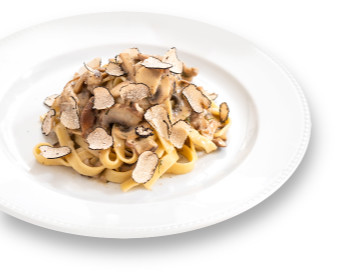
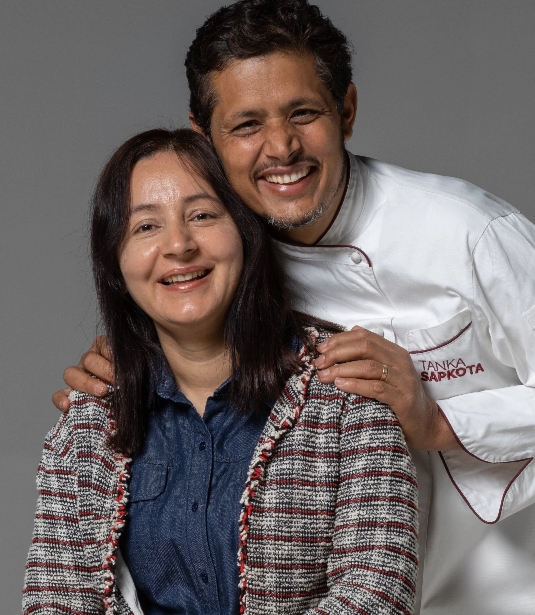
It is among pots and pans that I leave my mark and my enthusiasm for each dish that somehow takes us back to the flavors of memory or transports us on a journey to places we’ve never been. I realized early on that gastronomy was my path.
Biography
I was born in Damek on January 15, 1974 and grew up in a farming family in the serene landscapes of Nepal, later understanding the richness of a place where the work with tools and the care of animals leaves marks forever. Today things are very different, but at that time, I left my country partly to escape the tradition of arranged marriages. I ended up abandoning my Law degree and headed to Stuttgart, Germany. There I started by washing dishes, became a kitchen assistant, made pizzas, worked as a waiter, and finally achieved my dream of being a chef.
On a trip to Portugal, I immediately fell in love with the country and its people, and a stay planned for two weeks turned into a lifetime. It was in Lisbon in 1999 that I opened my first restaurant, Come Prima. However, I felt my knowledge was not enough and wanted to study in Italy. The restaurant was left in the hands of my wife while I attended the prestigious Gambero Rosso Academy. While in the country, I had the opportunity to learn from great masters like the prestigious chefs Gualtiero Marchesi, Igles Corelli, and Paolo Trippini or the pizzaiolos Gabriele Boci, Franco Pepe, and Enzo Coccia. I feel I have three great debts: the first to my fellow Nepalese and Nepal, another to the Italians and Italy, and finally to Portugal and the Portuguese people who welcomed me so well.
In my homeland, I try to help those most in need and strive to promote the culinary arts and spread its culture. Meanwhile, under my influence, my father sold his property and associated himself with the Gurukul Vidyapeeth Foundation. The amount raised was used to help needy children in Nepal continue their studies. Regarding Italy, I produced the documentary series “A Taste of Italy” acquired by the television station CNN in partnership with my friends Duarte das Neves and Tiago Carvalho, which helped promote Italian dishes and products, a small contribution to my debt of gratitude to Italy and its people.
In Lisbon during the pandemic, I wanted to help those most affected and delivered more than 10,500 pizzas in the neighborhoods of Lisbon with the help of the City Council. Door to door, we distributed the pizzas with the same quality I always served at Forno d’Oro but made in each neighborhood with a mobile wood-fired oven. A work that filled me with great satisfaction. I also got involved in the production and promotion of Barbela wheat, an ancient variety, and in the harvesting of boletus, truffles, and wild asparagus directly from nature that I later served in my dishes. Also in Portugal, in partnership with government and academic entities, I was with my friend trifolau (truffle hunter) Giovani Longo and his truffle dogs Lola and Laika to scour the country from north to south in search of truffles. After two years of searching, we finally found truffles in Portugal for the first time in the history of Portuguese gastronomy.
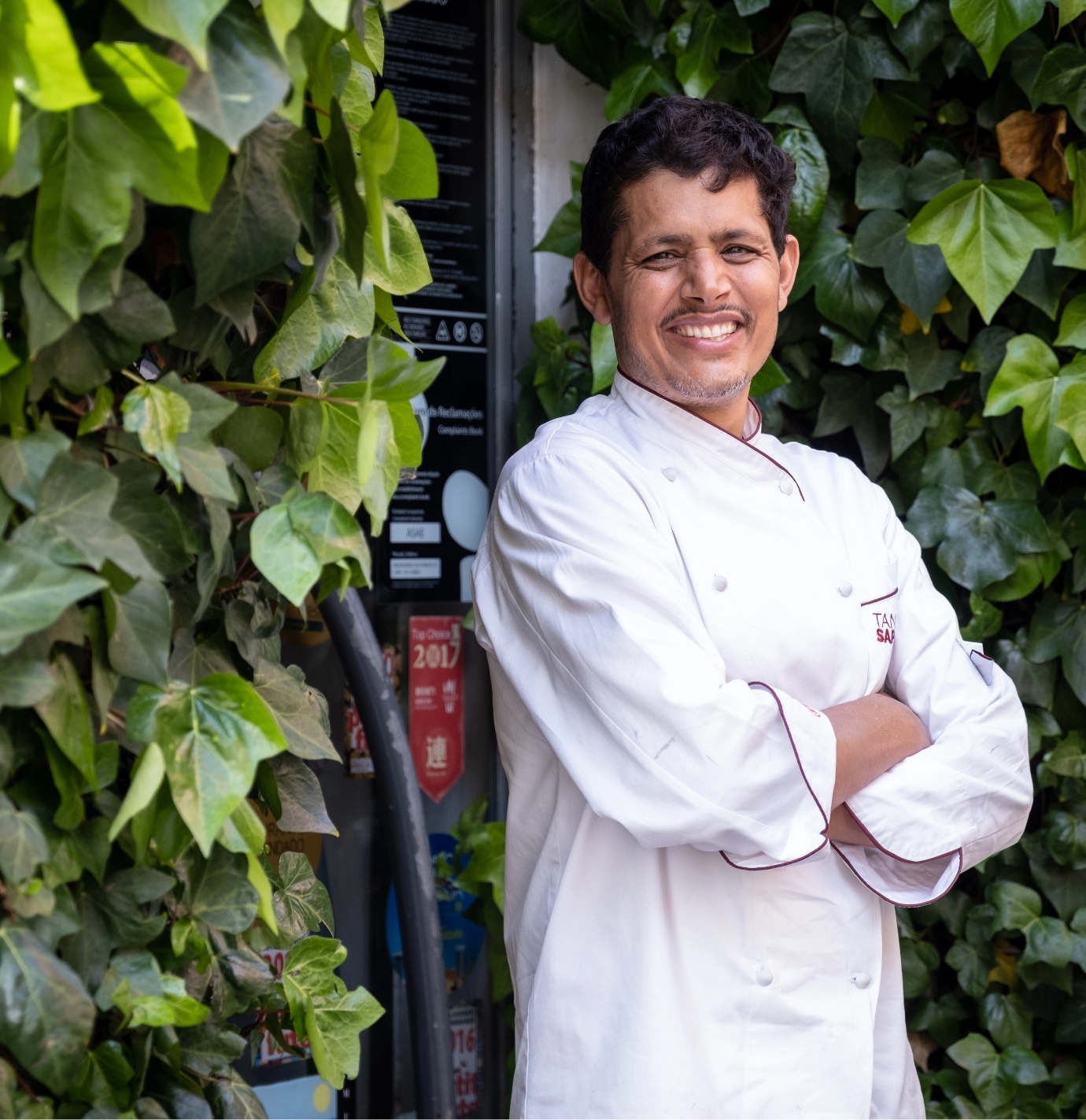
“I can’t change the world, but I can help make it better”.
Chef Tanka Sapkota
Family, friends, and my journey have kept me in this sunny and vibrant city. I live in the center of Lisbon with my wife Sita and my children Anjali and Adarsha, a few minutes from my restaurants. I want creativity, feeling, and harmony in my kitchen. These are places where customers become friends, where food has a story to tell, and where everyone is welcome. It’s a universe I don’t separate from my own way of being and facing life. As in Nepal, where Hindus and Buddhists have always lived side by side, or in Portugal, where doors have always opened, this path must follow a state of mental and emotional clarity that I pursue every day. I practice meditation three times a day and in this way, I try to make the world a better place for me and all those around me. What I see, think, and feel is reflected in my cooking and fills me with pride every day.
A word of thanks and recognition to my family and the rest of the team who work daily and arduously with me in the four restaurants to deliver to customers the best we have to offer. Among other national and international awards, I received the ordination as a knight of the “Order of the Truffles and Wines of Alba” in Piedmont, the “Pizza Top 50 Award,” inclusion in the list of the 70 “Restaurants in the World by The Extraordinary Italian Taste,” and “Best Young Entrepreneur of the Year 2016 from AHRESP.” These are a recognition of my cooking and all those who move forward with me. These distinctions remind me of social responsibility and solidarity.
It is necessary to help those most in need and influence others to do the same. I want to leave the world better than I found it. Gastronomy is also about change and renewal. People need hope, tenderness… and well-made food.
